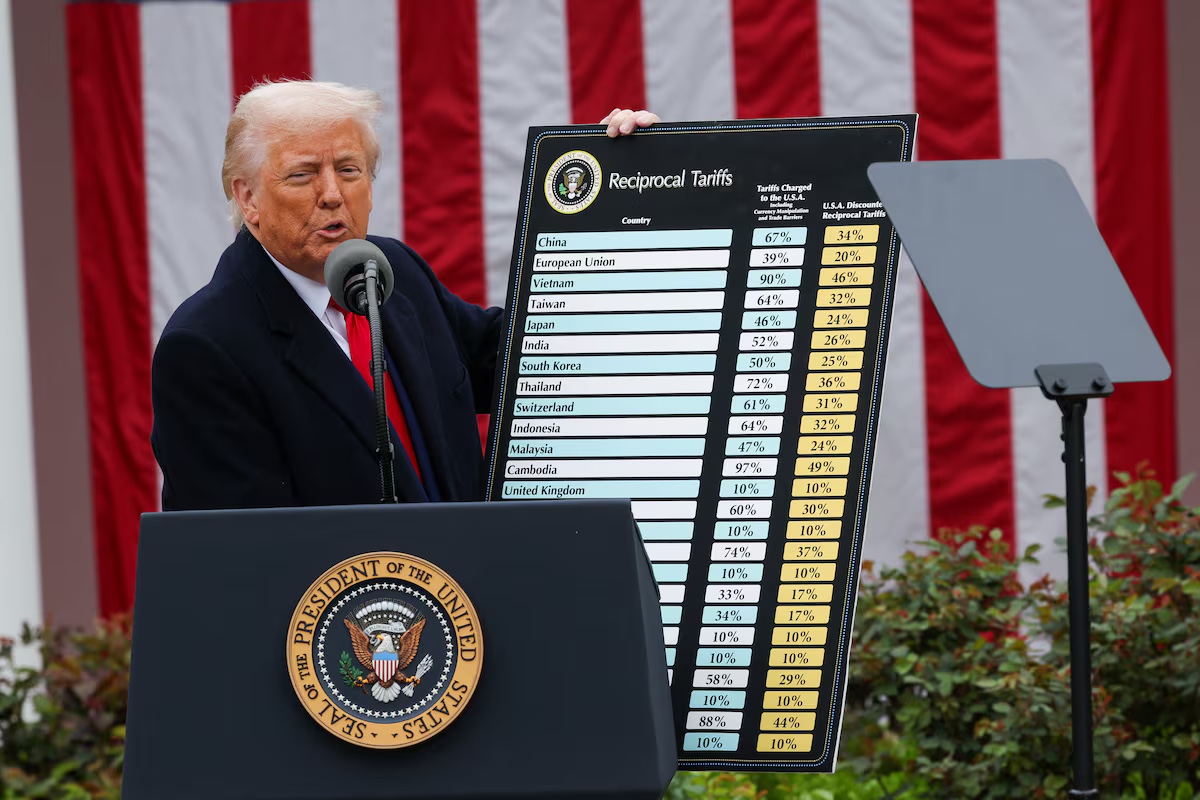HARARE – President Donald Trump on Wednesday imposed far-reaching new tariffs on nearly all of the United States’ trading partners, including an 18 percent “reciprocal” tax on Zimbabwean exports, as he claimed “our country has been looted, pillaged, raped, plundered” by other nations.
Zimbabwe exported $119 million worth of goods to the United States in 2023, mainly ferroalloys ($62.7 million), raw tobacco ($26 million), and raw sugar ($14.5 million), official data shows.
Trump, speaking at the Rose Garden at the White House named Zimbabwe among 50 other African nations he says imposed tariffs on United States goods.
“This is not full reciprocal, it is kind reciprocal,” Trump said, holding a chart showing how much his country’s trading partners were charging the U.S. in tariffs.
Rates ranged from 10 percent to 50 percent.
With a few exceptions, based on the charts Trump read out, the tariff rate being imposed by the U.S. on most countries was around half of what those countries charged. There were some exceptions in which the U.S. charged the exact rates that those countries charged, according to the chart.
Trump’s chart claimed Zimbabwe maintained a 35 percent tariff on U.S. goods.
Among African nations, Botswana – the world’s largest diamond producer – will face 37 percent tariffs compared to 30 percent for South Africa, 47 percent for Madagascar and 50 percent for Lesotho – the highest.
A 34 percent tax on imports from China and 20 percent on the European Union, among others — threaten to dismantle much of the architecture of the global economy and trigger broader trade wars.
Trump, who said the tariffs were designed to boost domestic manufacturing, used aggressive rhetoric to describe a global trade system that the United States helped to build after World War II.
The action amounts to a historic tax hike that could push the global order to a breaking point. It kickstarts what could be a painful transition for many Americans as middle-class essentials such as housing, autos and clothing are expected to become more costly, while disrupting the alliances built to ensure peace and economic stability.
“Taxpayers have been ripped off for more than 50 years,” he said. “But it is not going to happen anymore.”















